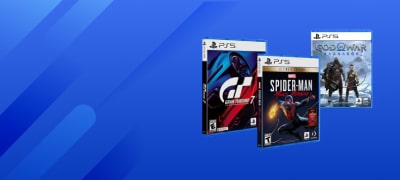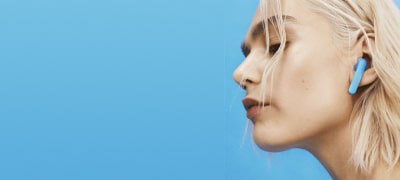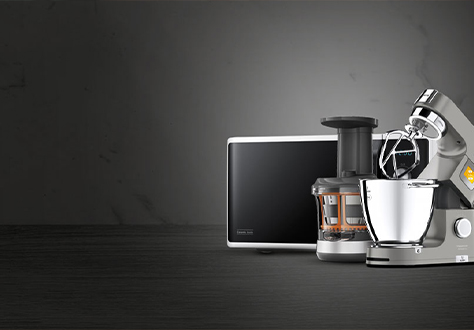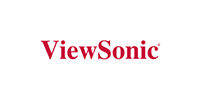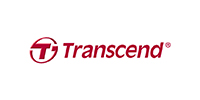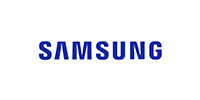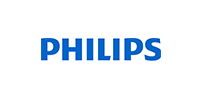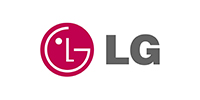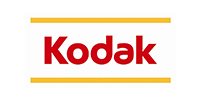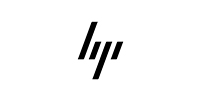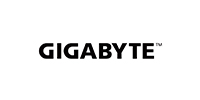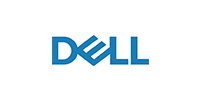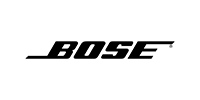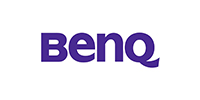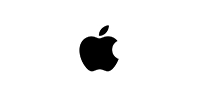Most Selling Baby Products in Indian Market 2025

India’s Baby Care Market Overview
India’s baby care market is valued at ₹1.2 lakh crore ($14.5 billion) and is growing at a CAGR of 10-12%, driven by rising disposable incomes, nuclear families, and increased awareness of child wellness. Over 25 million babies are born annually in India, making it one of the world’s largest markets for infant and toddler products.
Top-Selling Baby Products in India (2024)
1. Baby Food & Formula
- Market Size: ₹40,000 crore (≈$4.8 billion), 33% of total baby care sales.
- Top Brands:
- Nestlé Cerelac:
- Price: ₹250–₹300 (300g pack).
- USP: Iron-fortified cereals with regional flavors (rice, wheat, mixed fruits). Holds 45% market share in infant cereals.
- Lactogen (Nestlé):
- Price: ₹550–₹600 (400g tin).
- USP: Probiotic-enriched formula for digestion. Dominates 30% of the formula segment.
- Farex (Abbott):
- Price: ₹275 (200g pack).
- USP: High calcium and DHA for brain development. Popular in Tier 2/3 cities.
- Nestlé Cerelac:
The baby food segment is dominated by nutritional cereals and milk formulas, driven by working parents seeking convenient, nutrient-dense options. Nestlé’s Cerelac leads with its iron-fortified variants, which are recommended by 68% of pediatricians for weaning infants. Its regional flavors, such as Rice & Dal and Wheat Apple, cater to Indian taste preferences while addressing micronutrient deficiencies. Rural markets favor Farex due to aggressive pricing and campaigns promoting brain development benefits, though urban parents increasingly opt for imported organic brands like HiPP and Holle, sold at ₹800–₹1,200 per pack.
A key trend is the shift toward organic and clean-label products. Brands like Slurrp Farm (₹350–₹500 per pack) use millet-based cereals free from added sugars, targeting health-conscious millennials. The Food Safety and Standards Authority of India (FSSAI) has tightened regulations on heavy metals in baby food, prompting brands to highlight lab-test certifications. However, affordability remains a barrier—40% of low-income households still rely on homemade porridge due to formula costs.
E-commerce platforms like FirstCry and BigBasket drive 55% of baby food sales, with subscription models ensuring repeat purchases. Brands leverage AI-powered tools to personalize recommendations—for example, suggesting lactose-free formulas to parents in dairy-intolerant regions like East India. Despite competition, Nestlé retains dominance with a ₹2,000 crore annual spend on TV ads featuring celebrity moms like Kareena Kapoor.
2. Diapers & Hygiene Products
- Market Size: ₹25,000 crore (≈$3 billion), growing at 18% annually.
- Top Brands:
- Pampers (P&G):
- Price: ₹1,200–₹1,500 (64-count premium pants).
- USP: 12-hour dryness, hypoallergenic. Controls 38% of the diaper market.
- Huggies (Kimberly-Clark):
- Price: ₹999 (44-count pants).
- USP: CottonSoft technology for sensitive skin. #1 choice in urban areas.
- SuperBottoms (Indian DTC Brand):
- Price: ₹1,499–₹2,499 (reusable cloth diapers).
- USP: Eco-friendly, chemical-free. Grew 200% YoY due to sustainability trends.
- Pampers (P&G):
India’s diaper market is bifurcated into premium disposable (urban) and cloth/reusable (rural) segments. Pampers dominates metros with its UltraDry Core technology, which locks moisture for up to 12 hours—critical in humid cities like Mumbai. Meanwhile, SuperBottoms taps into eco-conscious demand with reusable bamboo-fiber diapers, reducing waste by 80% compared to disposables. Rural adoption is limited by low awareness, with only 35% of mothers using diapers regularly versus 85% in cities.
Price wars have intensified, with local brands like Super Cute and Teddyy offering ₹5–₹8 per diaper to compete against Pampers’ ₹15–₹20 range. Innovations include Smart Diapers by MamyPoko (₹1,800 for 64-count), which feature wetness indicators via color-changing stripes. However, counterfeit products account for 18% of online sales, often causing rashes due to substandard materials. To combat this, Huggies uses blockchain-enabled QR codes for authenticity verification.
Cultural factors shape usage patterns—for instance, 60% of South Indian parents prefer cloth diapers during festivals to align with traditional purity norms. Brands like Bumpadum offer customizable cloth designs with snaps for adjustability, priced at ₹299–₹499. Government initiatives like the Swachh Bharat Mission have boosted hygiene awareness, increasing diaper penetration in Tier 3 towns by 22% since 2022.
3. Baby Skincar
- Market Size: ₹15,000 crore (≈$1.8 billion), with herbal products growing at 22% CAGR.
- Top Brands:
- Himalaya Baby:
- Products: Gentle Baby Wash, Nourishing Cream.
- Price: ₹200–₹300 (400ml).
- USP: Ayurvedic ingredients (almond oil, chickpea). 55% market share in herbal baby care.
- Johnson’s Baby (Johnson & Johnson):
- Products: Top-to-Toe Wash, Bedtime Powder.
- Price: ₹180–₹350 (500ml).
- USP: Clinically proven mildness. Preferred by 70% of urban mothers.
- Mamaearth:
- Products: Moisturizing Daily Lotion, Onion Hair Oil.
- Price: ₹299–₹499 (200ml).
- USP: Toxin-free, MadeSafe certified. Sales surged 300% post-pandemic.
- Himalaya Baby:
Baby skincare sales are fueled by Ayurvedic traditions and rising concerns over chemical exposure. Himalaya Baby remains the market leader, with its almond-oil-based massage oil selling 1.2 million units monthly. Its “Dermo Protect” campaign, highlighting pediatrician endorsements, resonates with 78% of first-time parents. Johnson’s Baby, though criticized in 2023 for talc safety debates, regained trust with a ₹500 crore reformulation push to remove sulfates and parabens.
Mamaearth disrupted the sector with its “toxin-free” promise, leveraging mom influencers on Instagram to promote products like onion hair oil (₹299). The brand’s IPO in 2023 boosted its R&D budget by 40%, enabling innovations like pH-balanced wipes for sensitive skin. Regional preferences vary: North Indian parents prioritize moisturizing lotions for harsh winters, while South Indians favor coconut-oil-based products for humid climates.
Counterfeits remain a challenge, with fake lotions constituting 12% of online sales. Brands like Cetaphil Baby (₹450–₹600) now use tamper-proof seals and NFC tags. Small-town demand is rising, with Chicco’s Natural Sensation line (₹600–₹800) gaining traction in Punjab and Gujarat through pharmacy partnerships.
4. Baby Clothing
- Market Size: ₹30,000 crore (≈$3.6 billion), dominated by cotton wear.
- Top Brands:
- FirstCry (Brainbees Solutions):
- Products: Organic cotton bodysuits, ethnic wear.
- Price: ₹299–₹999.
- USP: India’s largest baby apparel retailer (450+ stores).
- Mothercare:
- Products: Swaddles, thermals.
- Price: ₹1,000–₹3,000.
- USP: Premium global brand with 25% YoY growth in India.
- H&M Kids:
- Products: Sustainable denim, party wear.
- Price: ₹799–₹1,999.
- USP: Trendy designs; 40% of sales from metro cities.
- FirstCry (Brainbees Solutions):
Cotton dominates 90% of baby apparel sales, driven by India’s tropical climate. FirstCry sells 1.5 million organic cotton bodysuits annually, priced at ₹299–₹499, with prints inspired by regional festivals like Onam and Durga Puja. Luxury demand is rising, with Mothercare’s cashmere sweaters (₹3,000–₹5,000) popular in Delhi and Mumbai. Online platforms like Myntra and Ajio drive 65% of sales, offering AI-based size guides to reduce returns.
Ethnic wear is a fast-growing niche, with brands like Cutiekins (₹599–₹1,299) offering silk sherwanis and lehengas for weddings. Sustainability is a key differentiator—H&M Kids uses 50% recycled polyester in its onesies, while Tiny Twig upcycles sarees into baby dresses. However, 70% of rural buyers still rely on local tailors due to budget constraints (₹100–₹200 per outfit).
Counter-seasonal sales boost winter wear—Zivame Kids’ fleece jackets (₹999) see 300% demand spikes in North India during December. Brands also focus on unisex designs to appeal to Gen Z parents, with gender-neutral color palettes like olive green and mustard yellow gaining popularity.
5. Baby Gear & Accessories
- Market Size: ₹12,000 crore (≈$1.4 billion).
- Top Products:
- Philips Avent Bottles:
- Price: ₹1,200–₹2,500.
- USP: Anti-colic technology. Sold 1.2 million units in 2023.
- Pigeon Sterilizers:
- Price: ₹2,500–₹4,000.
- USP: Trusted by 65% of Indian mothers for hygiene.
- Mee Mee Baby Carriers:
- Price: ₹1,999–₹3,999.
- USP: Ergonomically designed; 90% sales via Amazon.
- Philips Avent Bottles:
Safety regulations heavily influence this segment. Philips Avent’s anti-colic bottles (₹1,200–₹2,500) dominate with 45% market share, compliant with BIS standards. Pigeon’s sterilizers (₹2,500–₹4,000) are kitchen staples, with 90% of urban parents using them daily. Mee Mee’s carriers (₹1,999–₹3,999) cater to India’s joint-family culture, featuring adjustable straps for grandparents.
Innovations include smart thermometers like Dr Trust’s Fever SOS (₹1,499), which syncs with smartphones via Bluetooth. Strollers face mixed demand—while Babyhug’s lightweight models (₹6,999) sell well in cities, rural areas prefer cloth slings due to uneven terrain. Breast pumps are a growing niche, with Medela’s Swing Maxi (₹18,000) favored by working moms, though 60% still rely on manual pumps due to cost.
Online reviews heavily impact purchases, with Amazon’s “Choice” badges boosting sales by 30%. Brands like LuvLap offer virtual try-ons for car seats, reducing in-store visits. Challenges include high import duties on premium gear, pushing brands like Graco to localize 40% of production.
Key Trends Shaping Sales
- Premiumization: Urban parents spend 2–3x more on imported brands (e.g., Pigeon, Combi).
- Ayurvedic Demand: 60% of mothers prefer herbal products (e.g., Chicco’s Plant-based line).
- E-Commerce Dominance: FirstCry and Amazon account for 70% of online baby product sales.
- Regional Preferences:
- South India: High demand for organic cotton clothing.
- North India: Preference for premium diapers (Pampers, Huggies).
Challenges in the Market
- Price Sensitivity: 65% of rural buyers opt for unbranded, low-cost products.
- Counterfeits: 15% of online baby care products are fake, per NCPCR reports.
- Regulatory Hurdles: Strict BIS standards delay new product launches.
Top Retail Channels
- Online: FirstCry (40% market share), Amazon, Nykaa Baby.
- Offline: Reliance Baby, Shoppers Stop Mother & Child.
- D2C Brands: BabyChakra, The Moms Co. (growing at 50% YoY).
Most-Searched Products on Google (2024)
- Best organic baby food.
- Affordable diapers under ₹500.
- Ayurvedic baby massage oil.
- Non-toxic baby toys.
